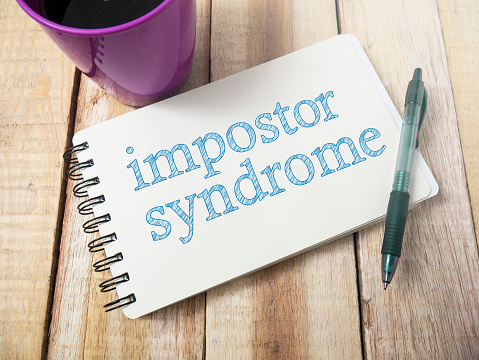Imposter Syndrome Exposed

What do Albert Einstein, Maya Angelou, Tom Hanks and Simone Biles have in common? In addition to earning the highest accolades in their respective fields of physics, poetry, acting and gymnastics, they have all expressed strong feelings of self-doubt. These types of feelings are often attributed to imposter syndrome.
What is Imposter Syndrome?
Imposter syndrome, or imposter phenomenon, was first described by psychologists Suzanne Imes and Pauline Rose Clance in 1978. It occurs when people, often high achieving, can’t accept the legitimacy of their intelligence, competence or success and worry they will be exposed as a fraud. They may also question whether they are good enough, whether they can live up to expectations, and whether they will ultimately fail.
Who Gets Imposter Syndrome?
Since Imes and Clance’s 1978 study, which focused on high achieving women, experts have identified imposter feelings in all kinds of people, usually high achievers and often from communities who are underrepresented in their fields or institutions. Because people with imposter feelings are by definition worried about being exposed as incompetent or unworthy, they usually suffer in silence. This can lead to depression and anxiety.
Anyone can experience impostor feelings. In NPR’s Hidden Brain podcast about self-doubt last month, psychologist Kevin Cokley cited Angelou as a striking example of an exceptionally accomplished person (Pulitzer Prize, Presidential Medal of Freedom, Grammy Awards…the list goes on) who feels self-doubt. “When I talk about her, I say, she is Maya freaking Angelou,” he said. “You know she is one of the greatest poetesses that we have ever experienced, and yet even Maya Angelou has had these feelings of being found out, that she is somehow fraudulent and fooling people.”
What Causes Imposter Syndrome?
Both internal and external forces can lead to imposter feelings. Perfectionism and the tendency to be our own worst critics can lead to a sense of inferiority. Competitive environments with intense pressure can promote self-doubt, as can exaggerated or inauthentic praise. On a wider scale, societal views and systematic biases can cause people to feel like they are undeserving or don’t belong.
How Can I Combat Imposter Syndrome?
Here are some ways to challenge your imposter feelings:
Celebrate Your Accomplishments
Keep track of your work or academic successes, even the small ones. Keep lists of your accolades and copies of recommendations, testimonials and even notes or emails of praise or kudos. Remind yourself that you are in your position because you are qualified to be there. Use this evidence to challenge your self-doubt.
Enlist Support
It is often not our own insecurity but rather systemic biases that cause us to feel marginalized, under-appreciated or incompetent. Ally yourself with mentors, colleagues and loved ones who believe in you and can advocate for you. If you are struggling with self-blame or fear of exposure, a therapist can help you reframe your mindset and learn to believe in yourself.
Avoid Internalizing Mistakes
Don’t let setbacks define you, your work or your potential. Even the world’s most accomplished people have failed. Reframe your mistakes into learning opportunities and areas for growth. No one is perfect.
Keep up the Good Work
Hard work in your area of study or expertise – something you are especially good at – can help mitigate imposter feelings. Just remember to balance your work with play and self-care.
Use Self-Doubt to Your Advantage
Some self-doubt leads to growth. According to Academy Award-winning actress and producer Viola Davis, self-doubt “keeps you humble, and it keeps you working.” A small amount of self-doubt can be a great motivator.
Help Others
If you know anyone with imposter feelings, share your own episodes of self-doubt with them. Your vulnerability will inspire others and remind them that they are not alone.
https://www.apa.org/gradpsych/2013/11/fraud
https://hbr.org/2021/02/stop-telling-women-they-have-imposter-syndrome
https://hiddenbrain.org/podcast/the-psychology-of-self-doubt/
https://www.psychologytoday.com/us/basics/imposter-syndrome
by Lisa Isenman, LGPC-Intern
Ponciano Counseling and Wellness, LLC
